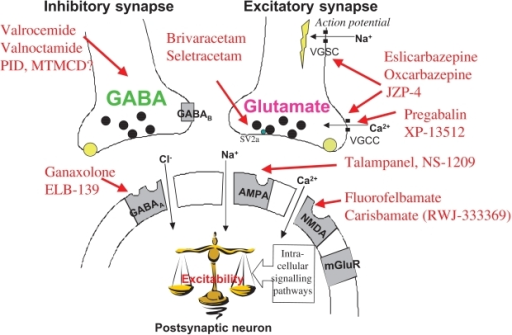How does Gabapentin Work ?

Neuropathic pain is a common and potentially treatable cause of considerable lifelong morbidity. Effective pharmacological treatments are scarce, but one group of drugs that has shown promise is the antiepileptics.
Gabapentin has become popular as a first-line treatment for neuropathic pain because of its efficacy as an antineuropathic agent and relatively benign side-effect profile. However, its mechanism of action is far from clear.
Neuropathic pain is pain coming from damaged nerves. It differs from pain messages carried along healthy nerves from damaged tissue (a fall, cut, or arthritic knee). Neuropathic pain is treated by different medicines than pain from damagedtissue. Medicines like paracetamol or ibuprofen are not effective in neuropathic pain, while medicines that are sometimes used to treat depression or epilepsy can be very effective in some people with neuropathic pain. Our understanding of fibromyalgia (a condition of persistent, widespread pain and tenderness, sleep problems, and fatigue) is poor, but fibromyalgia can respond to the same medicines as neuropathic pain.
![]()
Glutamate is also involved in transmitting pain signals in the brain and nervous system. As gabapentin reduces the release of this neurotransmitter it can also be used to treat nerve pain occuring as a result of damage to or a disturbance in the function of nerves (neuropathic pain)
The way in which gabapentin works is not fully understood. It is thought to work by binding to calcium channels found on nerve cells in the brain and spinal cord. This is thought to affect the release of various neurotransmitters from these nerve cells.
Neurotransmitters are natural body chemicals that are stored in nerve cells. They are involved in transmitting messages between the nerve cells. Gabapentin is thought to reduce the release of a neurotransmitter called glutamate.
Glutamate is a neurotransmitter that acts as a natural ‘nerve-exciting’ agent. It is released when electrical signals build up in nerve cells and subsequently excites more nerve cells. It is thought to play a key role in causing epileptic seizures. Reducing the release of glutamate from the nerve cells in the brain is thought to help stabilise the electrical activity in the brain and prevent epileptic fits.
Gabapentin is used to prevent partial seizures, and partial seizures that spread to secondary generalised seizures.
Glutamate is also involved in transmitting pain signals in the brain and nervous system. As gabapentin reduces the release of this neurotransmitter it can also be used to treat nerve pain occuring as a result of damage to or a disturbance in the function of nerves (neuropathic pain). It probably works in other ways in this area as well.